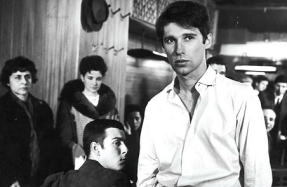The Changing View of Man in the Portrait

On November 28, 1953, Frank Olson, a civilian American scientist and Central Intelligence Agency employee, fell or jumped through a window from the 13th floor of the Hotel Statler (now the Hotel Pennsylvania) in midtown Manhattan. Thus begins Errol Morris’ plunge into the sordid, sensational CIA “mind-control” program known as MK-Ultra, with Peter Sarsgaard’s defenestrated body flailing in slow motion alongside the opening credits, to the tune of “No Other Love” from the 1953 Rogers and Hammerstein musical Me and Juliet. It’s a literally destabilizing overture to what, 11 feature documentaries and one aborted fiction film into his career, stands as Morris’ most exemplary work to date: a six-part, 241-minute portmanteau of images and textures that utilize virtually every tool in the documentarian’s formal arsenal. It’s an obsessive plunge akin to that of Zodiac (2007), filtered through the paranoia of The Parallax View (1974), albeit with a lot of talking heads.
Sold to Netflix by Morris as a cinematic “everything bagel,” has a panoptic scope that toggles freely between various forms—direct interview material, fluid informational graphics, re-enactments a la (1988), among others—as it dives into the reverberations of that foundational event. For the Olson family, it would mean two decades of puzzling out an inexplicable suicide—initially attributed to a nervous breakdown—until the Rockefeller Commission’s 1975 by Seymour Hersh, the narrative of Frank’s death morphed from suicide to CIA negligence regarding the effects of the LSD, with threat of a lawsuit, a $750,000 government settlement, and a formal apology from President Ford himself following not long after.
You’re reading a preview, subscribe to read more.
Start your free 30 days





